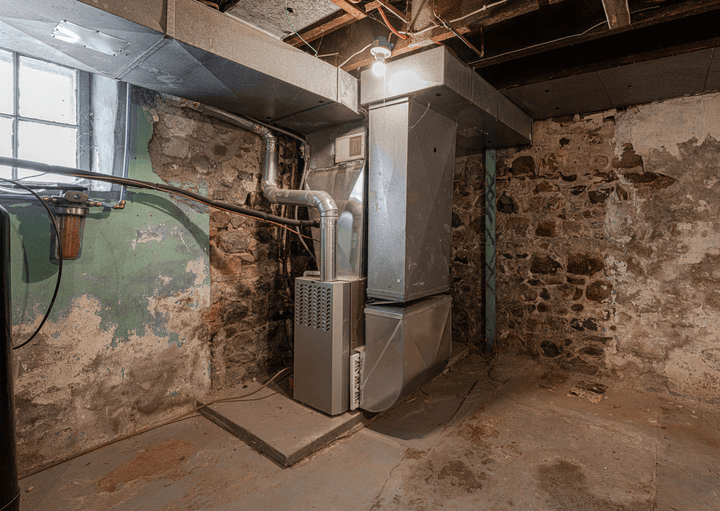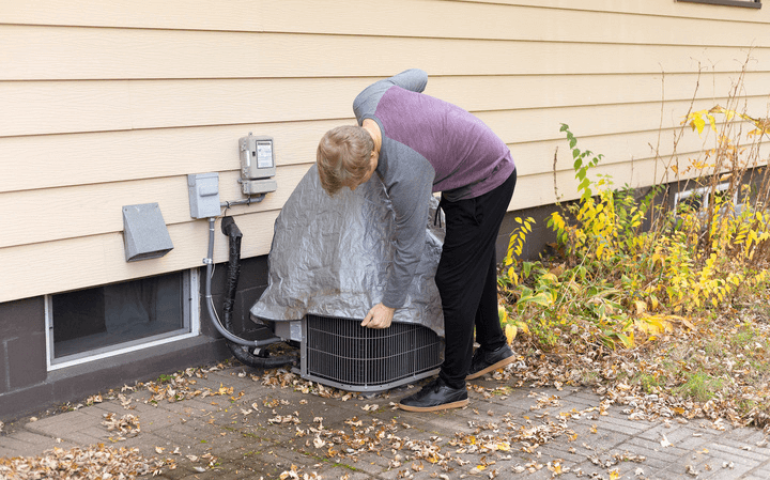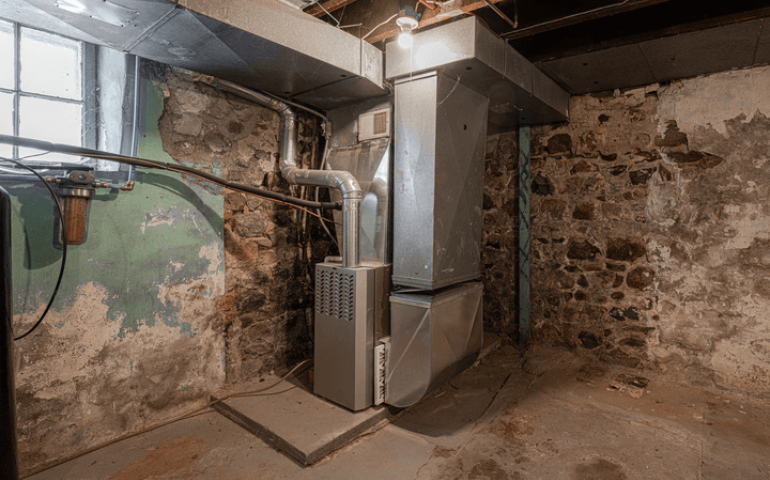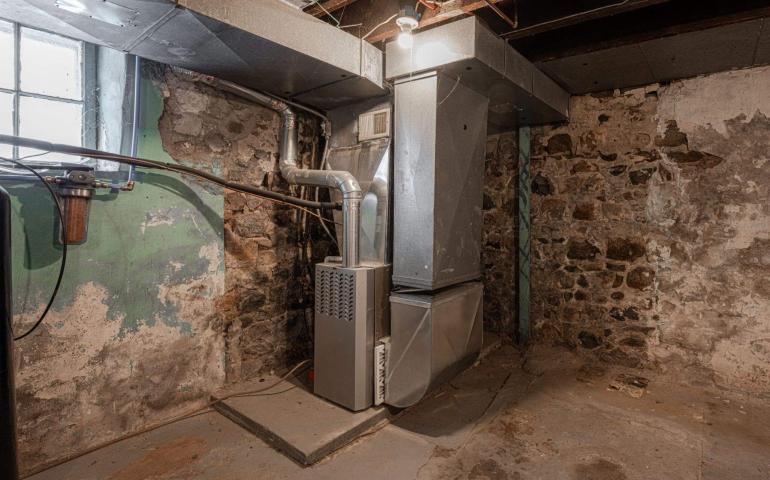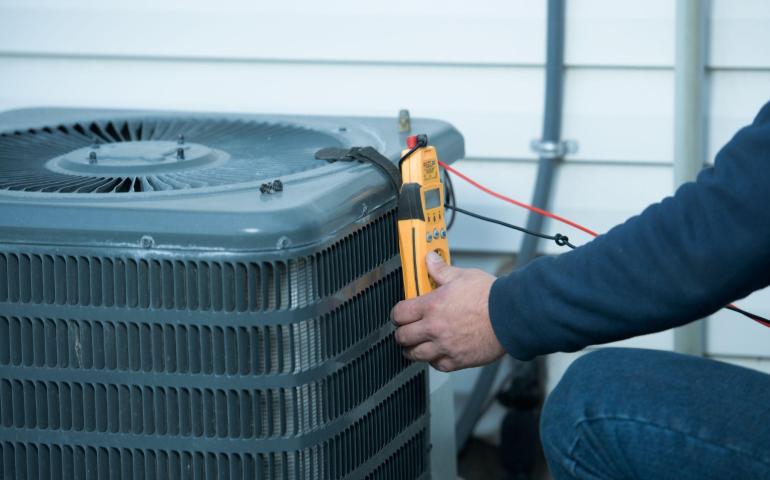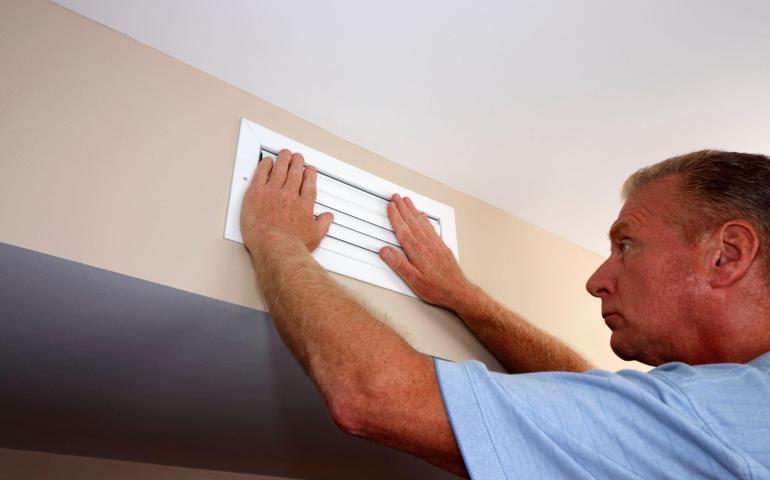As the temperatures drop, most of us don’t give our furnace a second thought, until something goes wrong. A reliable heating system is what keeps your family safe and comfortable, but once your furnace starts to age, it can quietly become less efficient, more expensive to run, and in some cases, downright dangerous.
How Long Does a Furnace Usually Last?
On average, you can expect to get about 15–20 years from your furnace, especially if it’s been properly maintained. However, once you begin to see signs of failure, it might be time for a replacement.
Some signs your furnace is near the end of it’s life:
- You’ve had to call for repairs more often in the past couple of years.
- Your energy bills keep climbing, even though your usage hasn’t changed much.
- The house never feels evenly heated, some rooms are toasty, others are chilly.
- There are strange noises or odd smells when the system kicks on.
Why an Old Furnace Can Be Dangerous
Replacing an older furnace isn’t just a matter of comfort. It also reduces your risk of safety issues from a malfunctioning heating system.
Carbon Monoxide Risks
One of the biggest dangers of a older furnace is carbon monoxide. If the heat exchanger cracks or the venting system gets blocked, it can leak into your home. Even low levels can cause health problems over time. This invisible, odorless gas can cause headaches, dizziness, and nausea which are easy to mistake for something else until the problem becomes serious.
Fire Hazards
Over time, dust and worn components make a furnace more likely to overheat or potentially spark. Especially with gas furnaces, the presence of a live flame means an older furnace with a blower motor that’s constantly straining or wiring that’s seen better days can create a fire risk.
Air Quality Problems
An old system usually can’t filter dust, dander, and allergens as well as it once did. That means more irritants circulating through your home which can cause breathing issues for anyone with asthma or allergies. If you’ve noticed more dust on surfaces or worsening allergy symptoms, an aging furnace could be to blame.
Efficiency and Cost Concerns
Even if safety isn’t an issue yet, an older furnace usually costs you in other ways. You may notice your system running longer to maintain the same temperature or kicking on more often. That wasted energy is money coming directly out of your pocket.
Newer models, like high-efficiency Trane Residential furnaces, use far less energy to do the same job. Over time, the savings can cover a big portion of the upfront investment.
Repairing vs. Replacing an Aging Furnace
It can be hard to weigh the decision of repairing or replacing your furnace. Minor fixes can keep your heating system going for a little while, but eventually doing furnace repairs stops making sense.
Here are some things to consider when deciding on whether to replace your furnace:
- If the repair bill is more than half the cost of a new system, replace it.
- If your furnace is over 15 years old and breaking down often, it’s time to start shopping for a new one.
- If its efficiency has decreased and your bills are increasing, replacement is usually the better option.
When It’s Time to Replace Your Furnace
So, when should you replace a furnace? If it’s pushing 20 years old, breaking down frequently, or creating safety concerns, it’s time. You’ll not only get peace of mind, but you’ll also enjoy lower bills and a more comfortable home.
Choosing the right system for your home size and needs is key. That’s where an experienced HVAC team makes all the difference.
How Maintenance Extends Furnace Life
Not ready to replace your furnace just yet? Regular maintenance can help you safely extend its lifespan by a few more years. Start by scheduling annual tune-ups to have a professional check for worn parts and clean important components. It’s also a good idea to have your ducts inspected and replace the air filters regularly to keep air flowing freely.
Professional care, like the residential heating services at Master Mechanical can prevent small issues from turning into expensive problems. Think of it like a regular oil change for your car, a preventative task that keeps the engine running smoothly.
Take Action Before Winter Hits
An older furnace may still run, but that doesn’t mean it’s running safely or efficiently. If your furnace is older, schedule a furnace inspection or replacement with Master Mechanical and protect your home, your health, and your comfort.

